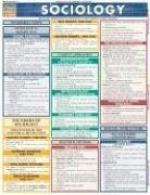|
This section contains 506 words (approx. 2 pages at 300 words per page) |

|
The idea of building up a complete material from a number of relatively thin layers to give a product of increased strength is an old idea. The patent for the first machine for pasting sheets of paper together in layers, forming chipboard, was granted in 1824 to an Englishman by the name of John Dickinson (1782-1869). The idea was applied again to paper in 1902, when naturally occurring resinous bonding materials were used as adhesives, still before the days of synthetic materials.
Since the time of Leo Hendrik Baekeland (1863-1944), laminates have come to refer to composites consisting of thermosetting plastics (phenolic, polyester, epoxy, or silicone) bonded to paper, cloth, asbestos, wood, glass fiber, or other material. Contemporary walls for housing, which have been made of thin aluminum sheets epoxied to polyurethane foam, are examples of laminar composites. The foam provides excellent thermal insulation, and the composite has a higher...
|
This section contains 506 words (approx. 2 pages at 300 words per page) |

|


